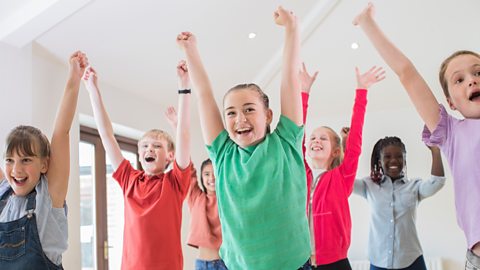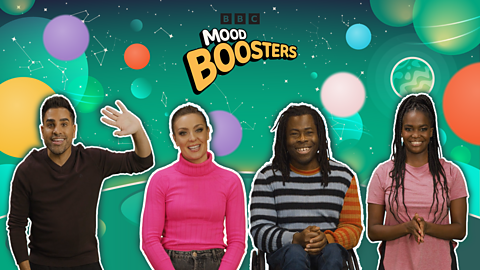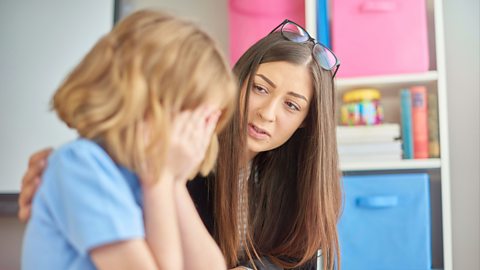
By Lucy Kirkbright
Primary school teacher and early years specialist
This article was published in December 2022.
More than ever, teachers are recognising the need to equip themselves with effective tools to support children as they navigate their way through twenty-first century life.
In September 2021, an found that тrates of probable mental health disorders have increased since 2017; in six to 16 year olds from one in nine (11.6%) to one in six (17.4%)т. The research also found that т39.2% of six to 16 year olds had experienced deterioration in mental health since 2017т. These statistics, coupled with the strains and challenges of modern living, make concerning reading for teachers and parents.
The impact of the cost-of-living crisis and the increasing dominance of social media in the lives of young people, can create conditions which lead to anxiety, depression, and poor mental health amongst pupils. More than ever, teachers are recognising the need to equip themselves with effective tools to support children as they navigate their way through twenty-first century life.
The new ТщЖЙЙйЭјЪзвГШыПк Teach т Moodboosters films, launched in November 2022, were created in partnership with ТщЖЙЙйЭјЪзвГШыПк Children in Need and experts at childrenтs mental health charity . The films showcase a wide selection of activities to help recharge and connect pupils; give an energy boost and allow them the time and space to imagine. They are arranged into these four skills, or тworldsт, and are designed to be selected by teachers to support the needs of their class, as and when required. The movement-based films support the key elements of primary schoolsт personal, social and health education (PSHE) programmes as well as the statutory primary RSHE curriculum which focuses on relationships. The resources provide pupils with a valuable opportunity to explore how they relate to others whilst developing crucial self-care and mental wellbeing strategies.

Connect
Nowadays, if we ask a key stage 2 pupil what is meant by the word тconnectт, we are likely to be met with a reply which is relates to being online, getting onto the right server or receiving hundreds of тlikesт from тfollowersт. Teachers can support their class by offering pupils the time and space to make in-person connections with those around them. Pupils need to feel a sense of belonging and community, and in the most effective classrooms, these emotions are nurtured and prioritised.
The selection of Moodboosters films based on opportunities to connect, help children to explore human to human collaboration and appreciation. The fun and interactive films interweave simple gestures and affirmations such as тhigh fivesт, building positive human connection alongside self-esteem and resilience. Over-exposure to social media can breed isolation amongst young people. It can be compelling, all-encompassing, and even addictive to impressionable young minds. The connect films offer an antidote to these negative impacts, centring on caring, communication and the building of relationships.
Imagine
How often do we demand of our pupils that they use their imagination? Do we fully consider the main types of stimuli young people are engaging with? Arguably, the dominance of social media has narrowed the range of stimuli young people are exposed to. Diminishing opportunities for visiting museums, libraries, and other places of interest due to the wide-ranging effects of the financial crisis mean that sources of stimulation have narrowed. As young people increasingly spend time within their own homes, often interacting with devices rather than other people; opportunities to allow their imagination to run wild have diminished.
Moodboosters imagine resources offer pupils the chance to escape the real world. Pupils can join a rock band and try their hand at air guitar or journey in a time machine! The films take pupils on a journey of self-discovery and creativity, removing them from the real world for a short time so that they can explore their inner selves and nurture their self-esteem. Children need to know that it is ok to тmake believeт and pretend and that roleplay is not only the domain of very young learners. The films offer a form of escapism that lowers stress and allows pupils to explore possibilities.

Recharge
Children are acutely attuned to what is going on around them. Parents who are managing financial stresses, perhaps working extra shifts or longer hours out of necessity, may unknowingly and unintentionally convey anxiety and stress to their children. Stress brings about fatigue, and this, coupled with greater exposure to social media and online gaming amongst young learners, can bring about low mood, a lack of concentration and diminished motivation. The knowledge-heavy primary curriculum is demanding and often fast-paced, all of which can exacerbate fatigue.
Amidst the busy, screen-dominated lives of young learners, teachers can offer pupils the opportunity to take a break and recharge; using stretching techniques, quiet reflection, and simple repetitive movements in the Moodboosters recharge films. The presenters are refreshingly honest about their own feelings of low mood and lethargy, explaining words and feelings clearly and reassuring pupils that these feelings are normal and тokт. The development of pupilsт self-awareness and a healthy lifestyle are key elements of PSHE and RSHE teaching and learning in primary school. These films are particularly useful for introducing pupils to the idea of тself-careт, and the value of making time to relax and reflect.

Boost
As teachers, we aim to motivate, energise, and engage the pupils in our care. Our best intentions can be hindered by the many and varied distractions of the outside world. The lure of mobile phones and gaming devices can make them difficult to put down at night. Bedtime boundaries can easily slip as parents juggle the demands of contemporary living with pleas from persistent children. The well-documented negative effects of blue light upon a childтs ability to produce melatonin, and therefore, get to sleep; can make for over-tired learners in classrooms. explains how lack of sleep can be linked to problems with attention, memory, and problem-solving skills. Sleep deprivation is also linked to a range of emotional issues and behaviour problems.
Whilst teachers may have little influence in changing pupilsт bedtimes, Moodboosters boost films offer opportunities to re-energise a lethargic class using physical activity such as singing, roleplay and dance. Readiness for learning amongst pupils is an ongoing battle, determined by a myriad of factors which are often out of a teacherтs control. Taking the time to boost and energise a class can foster more meaningful engagement and improved mental health as well as positive academic outcomes.
This exciting and fresh range of new films and resources, presented by familiar faces who pupils will want to engage with (from childrenтs television presenter Evie Pickerill to Strictly star Oti Mabuse), will provide a key part of primary teacherтs mental health toolkit; helping pupils to build resilience, focus on their emotions and explore strategies for managing the stresses of modern living.

Moodboosters. collection
New resources to get primary-aged children moving and learning about mental health and wellbeing.

Anti-Bullying Week 2022: Encouraging students to reach out. document
Martha Evans, Director of the Anti-Bullying Alliance, explores how schools can actively challenge bullying and encourage students to reach out.

Reducing anxiety about climate change. document
In this article for teachers educational consultant Helen Young offers advice on how we can alleviate eco anxiety amongst students.
